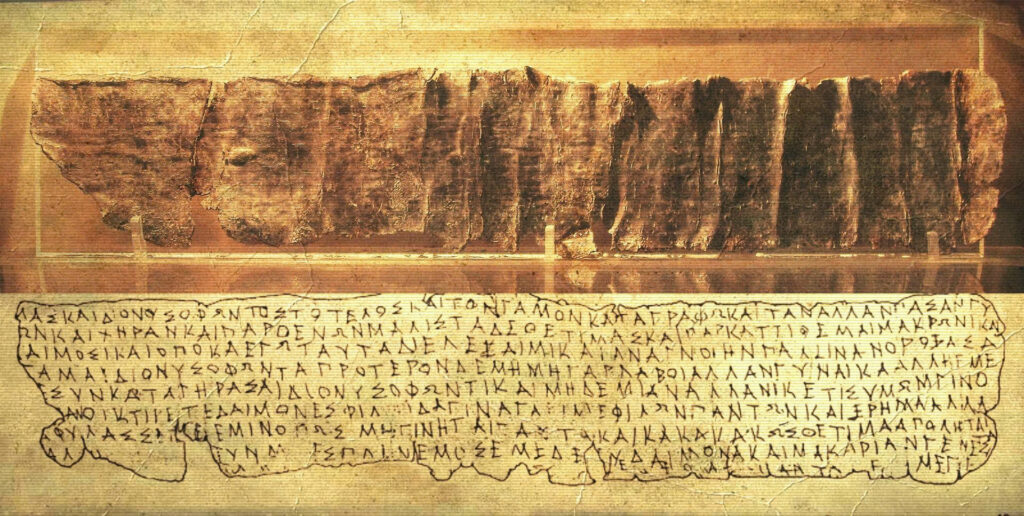Table of Contents
ToggleAn Enchanted Glimpse into History
In 1986, archaeologists uncovered an extraordinary artifact in Pella, the historic capital of Macedon. This lead scroll, known as the Pella curse tablet, dates back to 375-350 BC and contains a spell that has captured the attention of both historians and linguists. More than just a glimpse into ancient magical traditions, this tablet is a crucial key for unlocking the linguistic secrets of ancient Macedonia.

A Narrative of Love and Sorcery
The Pella curse tablet tells a poignant tale of unrequited love. A woman named Dagina etched a heartfelt appeal to the supernatural, seeking to bind her former lover Dionysophon and prevent his marriage to another woman, Thetima. The spell invokes “Makron and the demons” to ensure that Dionysophon remains single unless Dagina herself chooses to release him from the curse.

Linguistic Insights
The Doric Dialect Discussion
What truly sets the Pella curse tablet apart is its language. Written in a distinctive Doric Greek dialect, the tablet offers compelling evidence that Macedonia had its own native variation of Doric Greek. This challenges previous theories that suggested Doric Greek was imported into the region.
Insights from Everyday People
The Northwest Greek dialect featured in the tablet is believed to reflect the speech of Pella’s lower-class inhabitants. This interpretation comes from the author’s choice of words and their connection to magical beliefs. However, it’s important to note that magical practices were widespread across all social classes in ancient Greece.
Historical Importance
Reinterpreting Ancient Macedonian Language
Scholars such as Olivier Masson and James L. O’Neil argue that the tablet supports the idea that Macedonian was a Northwest Greek dialect, specifically Doric. This view aligns with other Macedonian inscriptions and sheds light on the region’s linguistic shift from native Macedonian to Koine Greek.

A Living Connection to History
The Pella curse tablet is not just an ancient artifact; it acts as a vibrant link to the people of ancient Macedonia. Through its unique dialect, we gain valuable insight into their beliefs, societal structures, and daily life. As we delve into this captivating relic, we uncover not just a language, but the essence of a culture that deeply influenced the course of history.

